Published at July 14, 2018 at 7:04 PM
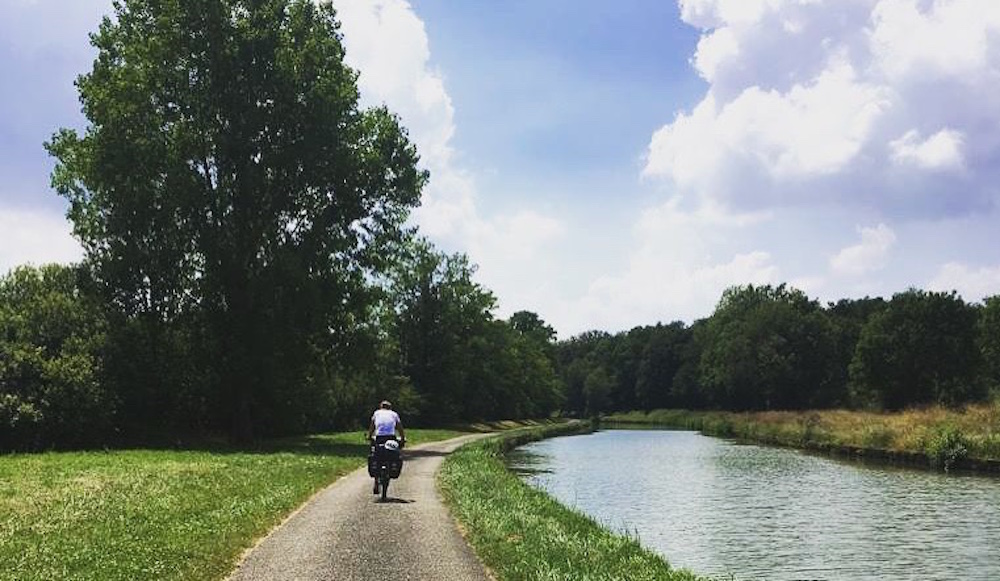
The border with Luxembourg is partly formed by the river Our. We cycle about 15 km across Luxembourg territory until we return to Germany with a ferry over the Mosel: our 5th border crossing within 5 days. We follow the Mosel a bit to the east until Konz, a town that lies at the spot where the Saar flows into the Mosel. The Saar is a “silent river”. Due to a number of high dams the flow of this river has at least optically stopped. We will continue to follow the Saar for two days. Now we cycle a little 20 km until we arrive in Saarburg. Saarburg is a small old town with a castle on a high rock, a cozy square with few terraces and a water trap in the center where the stream Leuk flows into the Saar. A little further on this tiny river we find our campsite which – again – is occupied with almost only Dutch people. The tent area is right on the bank of the Leuk. There are two other bicycle couples and we chat a bit. One couple comes from Ost Friesland (Germany) and cycles from the Bodensee to Katwijk. They have great tips about our route towards Strasbourg. The other couple comes from Groningen (The Netherlands), but is originally Frisian.
We buy a bottle of white wine and put it in the stream to cool, while we set up our tent and enjoy a refreshing shower. Gradually it became oppressively hot and oppressive; we had already seen that for the next 2 days there is a thunderstorm forecast.
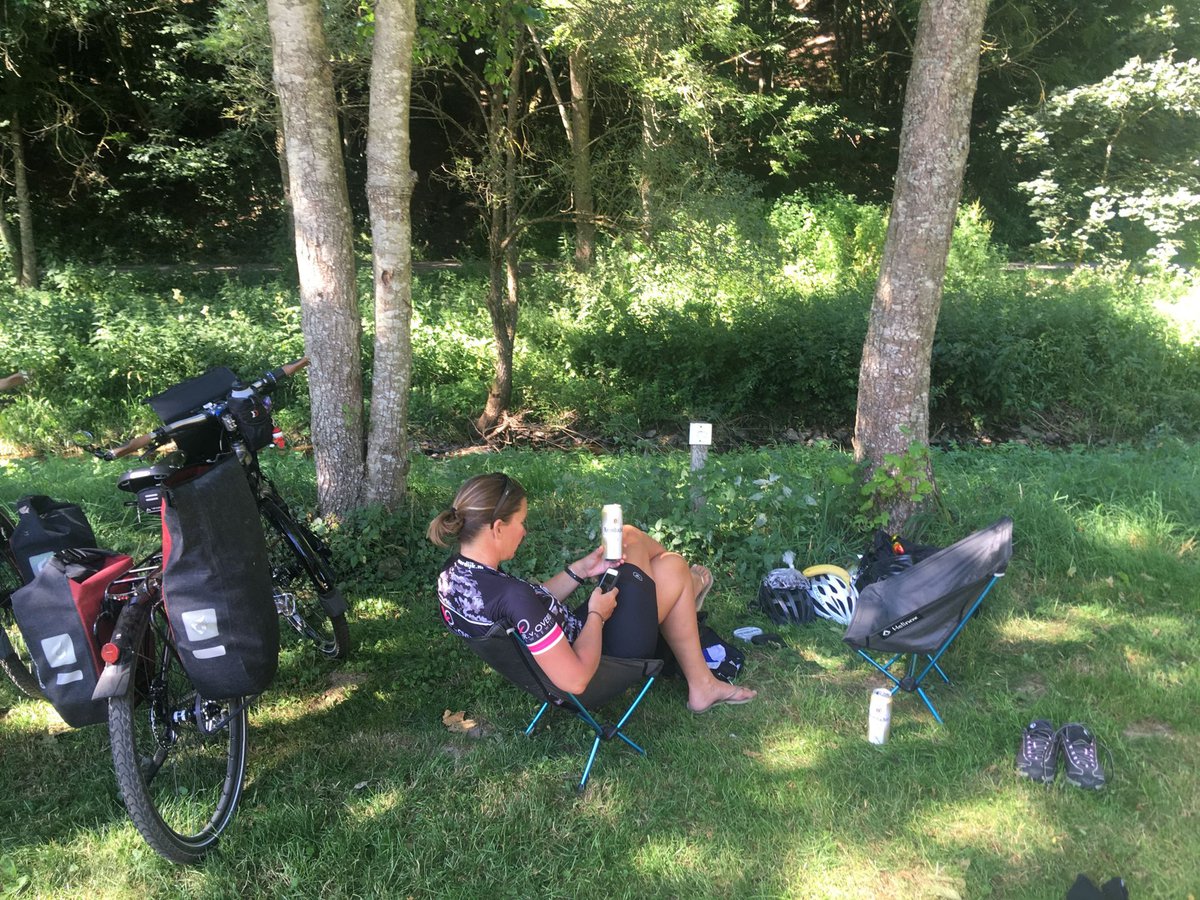
When we get up the next day we are givin’ a nice bikemap book from the German couple. This book describes the route from Trier to Strasbourg along the Saar and a number of canals in northeastern France. Thankfully we receive it and wish the couple a gute Reise.
We are getting off to a bad start; it is already half past 10 when we get on the bike and follow the Saar. The first raindrops of our trip are refreshing. The cloud cover breaks open and it get’s very hot again. Further in the south we see large clouds piling up: the thunderstorm announces itself well in advance.
The route along the Saar between Saarburg and Saarbrücken (80km away and our final destination today) is, with a few exeptions, very boring. Most of the bike path is next to the highway. Where possible we try to deviate from this route, which once results in a beautiful but tough (> 15%) climb through a forest and the other time we got lost in the city of Saarlouise.
Faster than expected we reach Saarbrücken and report to a canoe club that also manages a (basic) camping. Around 5 pm people gather to go canoeing on the Saar. However, they all return quickly because the thunderstorm is breaking loose! We flee under a canopy and leave our tent alone. It is a real cloudburst and there is some flooding. After a few hours it stops raining and we crawl into our tent. It has kept itself well in all that natural violence and is still dry. During the night, however, it continues to rain and storm. Also for tomorrow the rain and thunderstorms are predicted and we decide to stay here for another day.
I am text block. Click edit button to change this text. Lorem ipsum dolor sit amet, consectetur adipiscing elit. Ut elit tellus, luctus nec ullamcorper mattis, pulvinar dapibus leo.
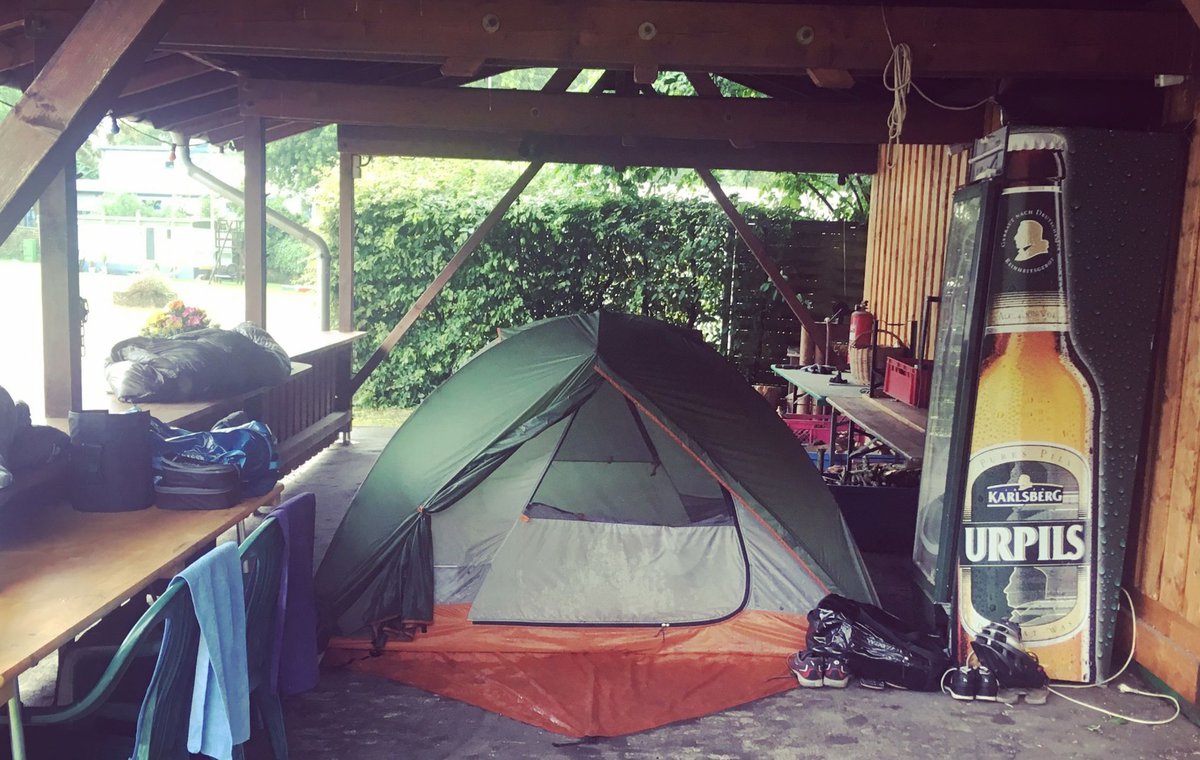
The following day is forced to be a rest day. When we wake up (during a thunderstorm) we notice that our tent is leaking a bit. We decide to move the tent to the shelter on the concrete; it’s the advantage of a free-standing tent.
Harry receives a message from a former colleague from Nederweert: Theo Meulen. He and his wife Joke are on their way to Hungary and will pass Saarbrücken. Harry has not seen Theo for 10 years. Between 9 and 11 it is not raining and we use that time-lapse to go to a bicycle shop and an outdoor shop in the center of Saarbrucken. Returning back to the canoe club it is raining again. It continues to rain but the predicted thunderstorm remains. Theo and Joke arrive early in the afternoon and soon a bag of wine is opened. An hour later it is clear that there is no more driving and Theo maneuvers de Kongel (the nickname for their mini camper) in to the campsite. It stays nic until late in the evening.
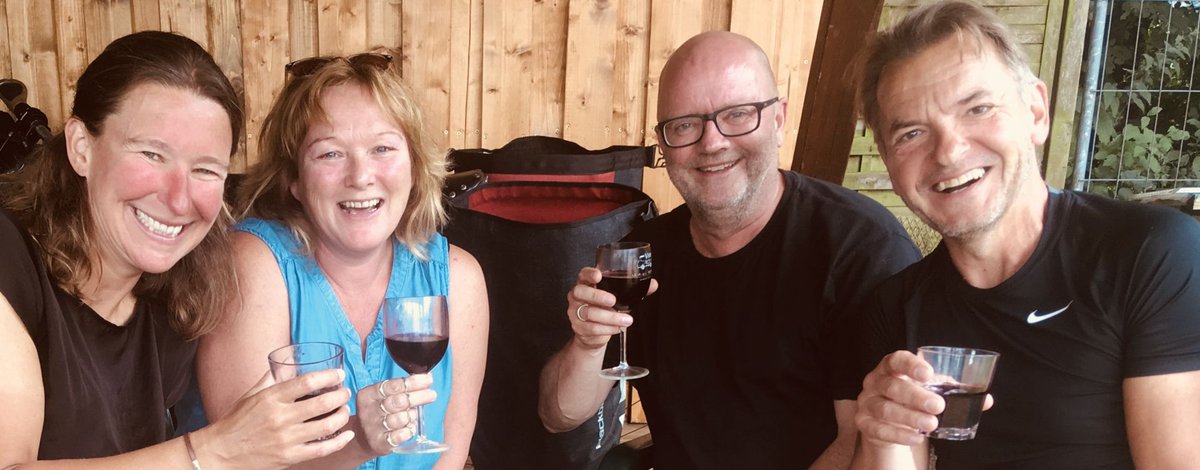
The next morning we say goodbye to Theo and Joke and cycle along the Saar to the south and quickly enter France. No idea how, but everything in France breaths a more romantic atmosphere that is lacking in Germany. Saarbrücken felt like an industrial city in decline and with a seemingly high unemployment, so everything is an improvement. We cycle along the Saar and along channels with so much height difference that there are unreal lots of locks in it. Bunches of flowering geraniums hang on the bridges near the locks and the lock houses are often deserted, but still idyllic.
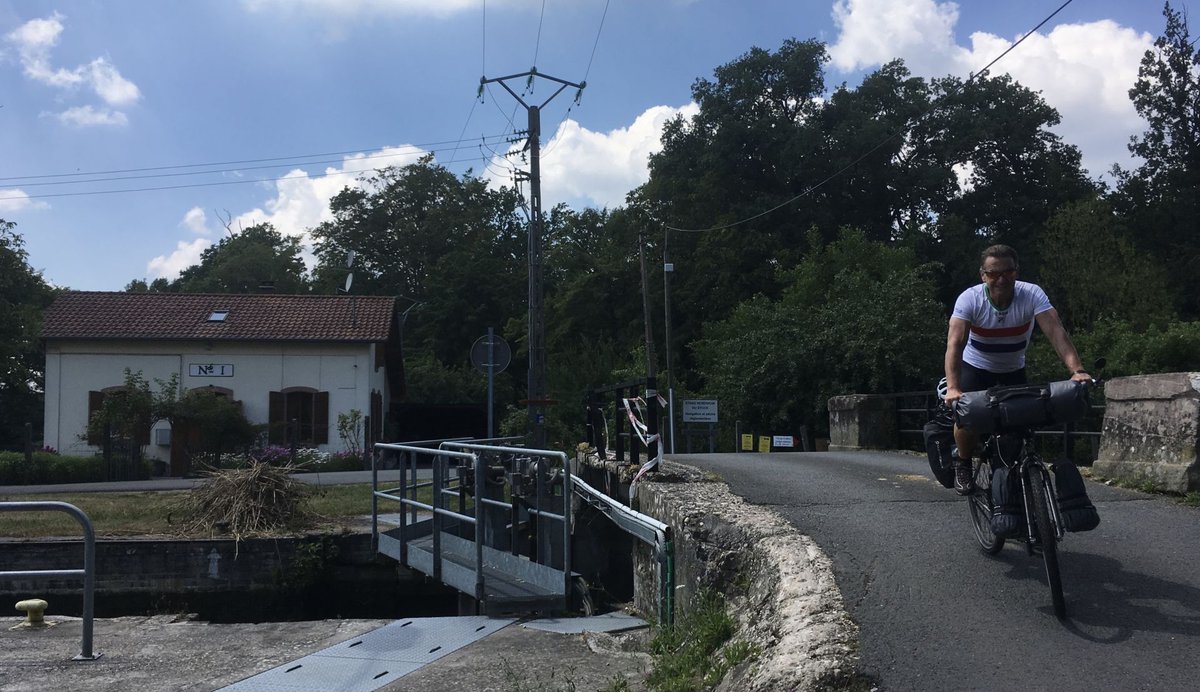
In the marina of Mittersheim we are planning to pitch up our tent in the public domain. There are facilities for campers and boat people, so we recon that a mini tent of cyclists fits in well. But it is still early. We have a nice tailwind again. We continue our route along the canal that even traverses a lake. We end up at a high bridge for pedestrians and cyclists (without luggage) over the canal. We carry the bikes up together and pedal to the campsite at Gondrexange. The supermarket in Lorquin is 6.5 km as the crow flies. When we get there and back there are 20 extra kilometers on the counter and 2 x 4 pretty tough climbs. And besides, they did not even sell a cold beer in Lorquin!
Back at the campsite we meet three Dutch cyclists that pedaled across France. One has just broken his gear cable and has get to Lorquin for repair supplies. It seems impossible to us to cycle in Lorquin without gears, but oh well, last year we also met cyclists who cycle the Great Divide at single speeds, because without gears less damage…
The next day the canal feast is celebrated over the route to Saint Louise and Saverne. The extreme beautiful part ends however and turns into a boring and monotonous stretch to Strasbourg. A Swiss bikepacker tips us to cycle the German north side of the Bodensee instead of the Swiss south side. The Ost Friesen in Saarburg had given us the same tip fdaus before. The Germans have mastered the construction of radwegen and Germany is much cheaper than the Swiss side. Good tip. We don’t follow his advise to cycle to Freiburg and take a train in to the Schwarzwald to get us up hill. We want to cycle.
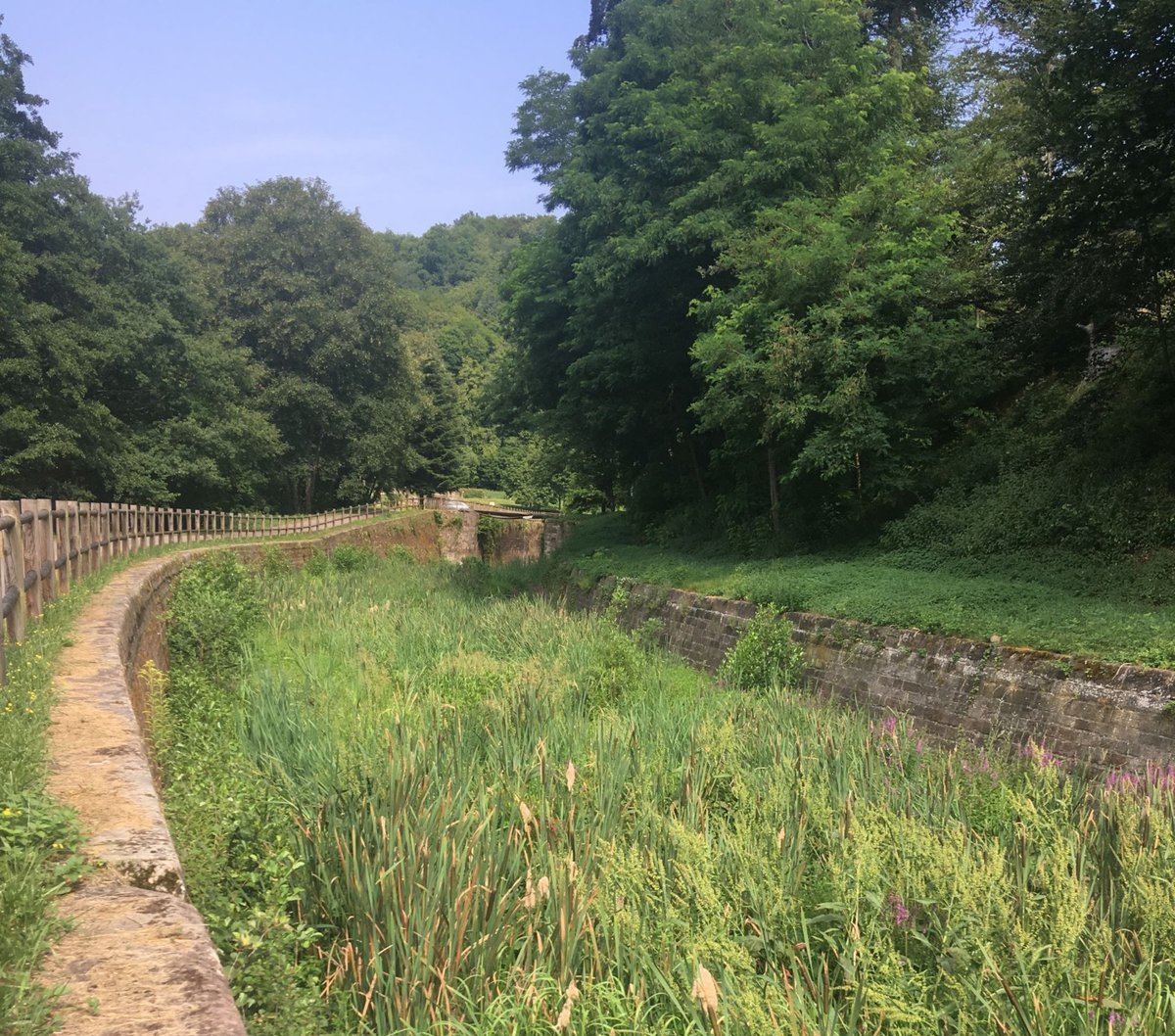
In Strasbourg we are a bit uncomfortable at the city camping. All sites are small and separated from each other so that visibility is limited. It feels somewhat oppressive. The best thing about a campsite is that you look at neighbors unabashedly (and if they are not Dutch) can talk aloud about them. In Strasbourg we do not see anything and so that theater is unfortunately closed. We go to the cafe and order two cold ice beers.